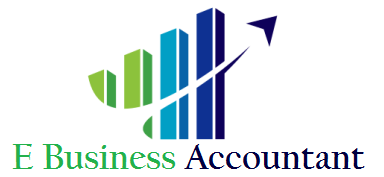Tax season can be a stressful time for both individuals and businesses. However, by taking a proactive approach and staying organized throughout the year, you can significantly reduce stress and improve the accuracy of your tax filings. You can also consider seeking the services of a tax consultant for small business in West Houston, TX, for efficient tax preparation.
Here are some practical tips to help you stay prepared and organized for tax season year-round.
1. Maintain Organized Records
Effective record-keeping is the foundation of smooth tax preparation. So, try to keep all relevant documents, including receipts, invoices, bank statements, and tax forms, well-organized and easily accessible. In fact, you can create a filing system, whether physical or digital, to categorize and store these documents by type and date.
Try to use labeled folders or a document management system to store records. You should also regularly update and review your files to ensure completeness and accuracy.
2. Track Expenses Consistently
Consistent tracking of expenses throughout the year can help you maximize deductions and credits. Whether it’s business-related expenses, charitable donations, or medical costs, keeping a detailed log will make it easier to identify deductible expenses when tax season arrives.
You can use expense-tracking software or a mobile app to record and categorize expenses as they occur. However, try to regularly reconcile your records with your bank statements to ensure accuracy.
3. Utilize Tax Software
Tax software can streamline the preparation process by guiding you through the filing process, performing calculations, and ensuring compliance with tax laws. Nowadays, many tax software programs also offer features like expense tracking and document storage, making year-round tax preparation more manageable.
Try to choose a reputable tax software that suits your needs and budget. Take advantage of features like electronic filing, automatic updates, and the ability to import financial data from your bank or accounting software.
4. Schedule Regular Check-Ins
Conducting regular check-ins throughout the year can help you stay on top of your tax situation and make necessary adjustments. You should review your income, expenses, and any changes in tax laws that may affect your filing. These check-ins can also help you identify potential issues early and address them promptly.
Set a quarterly reminder to review your financial records and tax situation. You can use this time to update your expense log, reconcile accounts, and review any new tax regulations.
5. Consult with Tax Professionals
Engaging with a tax professional can provide valuable insights and ensure that you are taking advantage of all available deductions and credits. Tax professionals can also help you navigate complex tax situations and provide guidance on tax planning strategies.
Schedule periodic consultations with your tax advisor to discuss your financial situation, tax planning strategies, and any changes in tax laws. You can keep a list of questions or concerns to address during these meetings.
6. Plan for Estimated Taxes
If you are self-employed or have significant income outside of your regular job, you may need to pay estimated taxes throughout the year. Planning for these payments can prevent underpayment penalties and ensure that you stay on track with your tax obligations.
You should calculate your estimated taxes based on your projected income and set aside funds each month to cover these payments. Use tax software or consult with a tax professional to determine the correct amount to pay each quarter.
7. Stay Informed About Tax Laws
Tax laws are constantly evolving, and staying informed about these changes is crucial for accurate tax preparation. You can subscribe to tax newsletters, follow reputable tax blogs, or attend tax seminars to keep up with the latest developments and how they may impact your tax situation.
Creating a dedicated folder or bookmark section for tax-related updates and resources will help you stay in compliance. Try to regularly review these materials and incorporate any relevant changes into your tax planning and preparation process.
Benefits of Proactive Tax Preparation
With proactive tax preparation, you can enjoy several benefits, including:
- Reduced Stress: Staying organized and prepared throughout the year minimizes the last-minute scramble and stress associated with tax season.
- Improved Accuracy: Consistent record-keeping and regular check-ins help ensure that your tax return is accurate and complete, reducing the risk of errors and audits.
- Maximized Savings: Identifying deductible expenses and taking advantage of available credits can significantly reduce your tax liability and maximize your savings.
Conclusion
Proactive tax preparation is essential for reducing stress and improving accuracy during tax season. You can start implementing these tips today to ensure a smooth and successful tax season.

